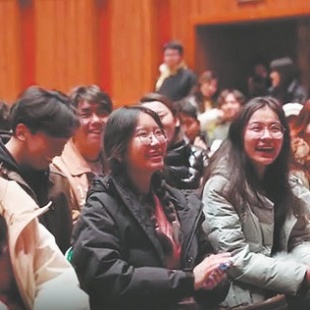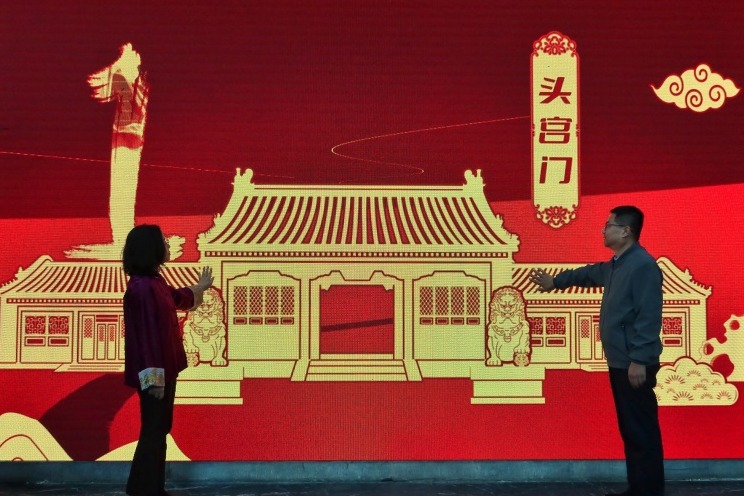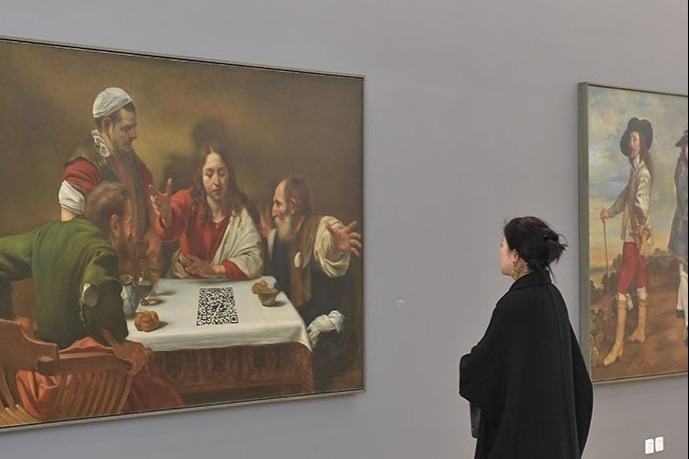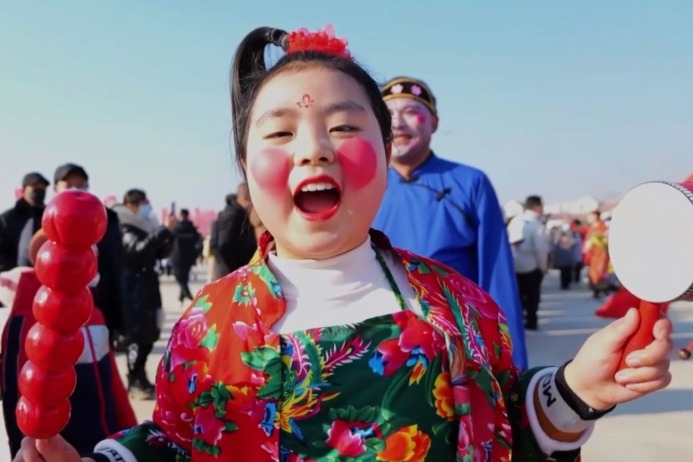Tibetan student brings down the house on the 'roof of the world'


LHASA — As the lights brightened, a young performer took to the stage against the backdrop of a red curtain. Holding the microphone with confidence, he began recounting humorous tales in Tibetan, eliciting laughter and applause from the crowd.
The 22-year-old, currently studying at a university in Beijing, has established a stand-up comedy team called Shwow in Lhasa, the capital of Southwest China's Xizang autonomous region, which delights audiences during the summer and winter breaks.
"We hope every Tibetan who loves stand-up comedy will come with anticipation and leave with a smile," he says.
Nyanzin Drakpa decided he wanted to become a stand-up comedian three years ago, after watching a show in Beijing.
"The sets were about elderly people exercising in parks, and they reminded me of similarly funny scenes I encountered in a park in Lhasa," he recalls, adding that his decision to perform stand-up comedy in Tibetan got immediate support from his father.
In fact, his inclination toward stand-up comedy is greatly influenced by his father, Dorje Drakpa, a well-known cross-talk comedian in Xizang, who participated in the regional gala for the Tibetan New Year.
"When I was a child, I often tagged along with my dad to performances, and watched him bring joy to the audience," Nyanzin Drakpa says.
When he and his high school classmates founded the Shwow team in 2021, stand-up comedy was still a relatively obscure form of performance art in Xizang.
To their surprise, their first show, arranged free of charge at a cafe, drew nearly 300 people — six times the seating capacity — even without any advertising.
"Some people stood on tables and the bar counter. Even the seat of the cafe's boss was taken," Nyanzin Drakpa says, adding that those who could not squeeze in were standing on stairways, listening to the show.
With his unique sense of humor and keen observation, Nyanzin Drakpa captures the details of his life, such as his experience of being fined by a traffic policeman, and skillfully turns them into hilarious set pieces.
He insists on performing in Tibetan and, to improve his own proficiency, he attended extracurricular Tibetan classes during his holidays.
"Some of our sets are linked to Tibetan culture, so performing them in Tibetan will make it easier for them to resonate with the audience," he says.

Many outstanding literary and artistic creators have emerged, amid the flourishing cultural and artistic landscape of Xizang in recent years. As an emerging form of performance art, Tibetan stand-up comedy is gaining popularity and has become an important source of entertainment for Tibetans, especially the young.
University student Tashi Tseten says that Nyanzin Drakpa skillfully blends traditional themes with a contemporary approach, which he finds very enjoyable. "Stand-up comedy has become a way for me to relieve the pressure of studying."
To date, some 30 comedians have performed as part of the Shwow team, with the revenues of each show exceeding 30,000 yuan ($4,225) during the Tibetan New Year holiday. Earlier this year, Nyanzin Drakpa staged a series of shows in his hometown, Lhokha city.
Looking forward, he plans to upload videos of their performances with Mandarin subtitles to reach a wider audience.
"I hope our shows will go beyond the plateau and spread joy to even more people," says Nyanzin Drakpa.





































